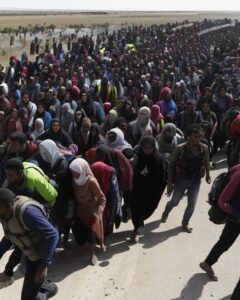The Global Refugee Crisis ranks among the foremost humanitarian challenges of contemporary times, precipitated by an intricate interplay of forces that compel millions to abandon their homes. Chief among these causes are armed conflicts, political repression, and widespread violence, creating conditions that make life unbearable for myriad individuals and families. Notably, the protracted wars in regions such as Syria, Afghanistan, and Yemen have resulted in monumental refugee movements as people search for safety and stability in other lands. Compounding this situation are systematic human rights violations and draconian regimes, which propel numerous individuals into seeking asylum and escaping persecution. Moreover, economic instability and abject poverty play crucial roles in driving individuals from their homelands as they quest for improved opportunities and living conditions.
Climate change has risen as a significant catalyst of forced migration, with natural calamities, increasing sea levels, and severe weather patterns causing growing numbers of displacements. These environmental factors aggravate pre-existing vulnerabilities, particularly in regions already facing political and economic strife. Refugees navigating across borders confront a myriad of challenges such as perilous travel conditions, exploitation, and squalid living circumstances within overcrowded refugee camps. Furthermore, they endure legal and bureaucratic impediments in host countries, which often hamper their access to fundamental services including healthcare, education, and employment. Prejudice and xenophobia exacerbate these obstacles as refugees frequently encounter hostility and societal exclusion in their new surroundings.
Addressing the Global Refugee Crisis mandates the international community to tackle both the immediate needs of refugees and the deeper roots of forced migration. This requires a multifaceted and synchronized approach, encompassing conflict resolution, economic development, and strategies for climate change mitigation. While humanitarian aid is crucial to relieve immediate suffering, supportive measures for host countries must accompany long-term solutions focused on fostering conditions where displaced individuals can safely return home or successfully integrate into new societies. The Crisis serves as a compelling reminder of the urgency for a united global response aimed at upholding the rights and dignity of those compelled to flee their homes, while addressing the root causes of their displacement.

